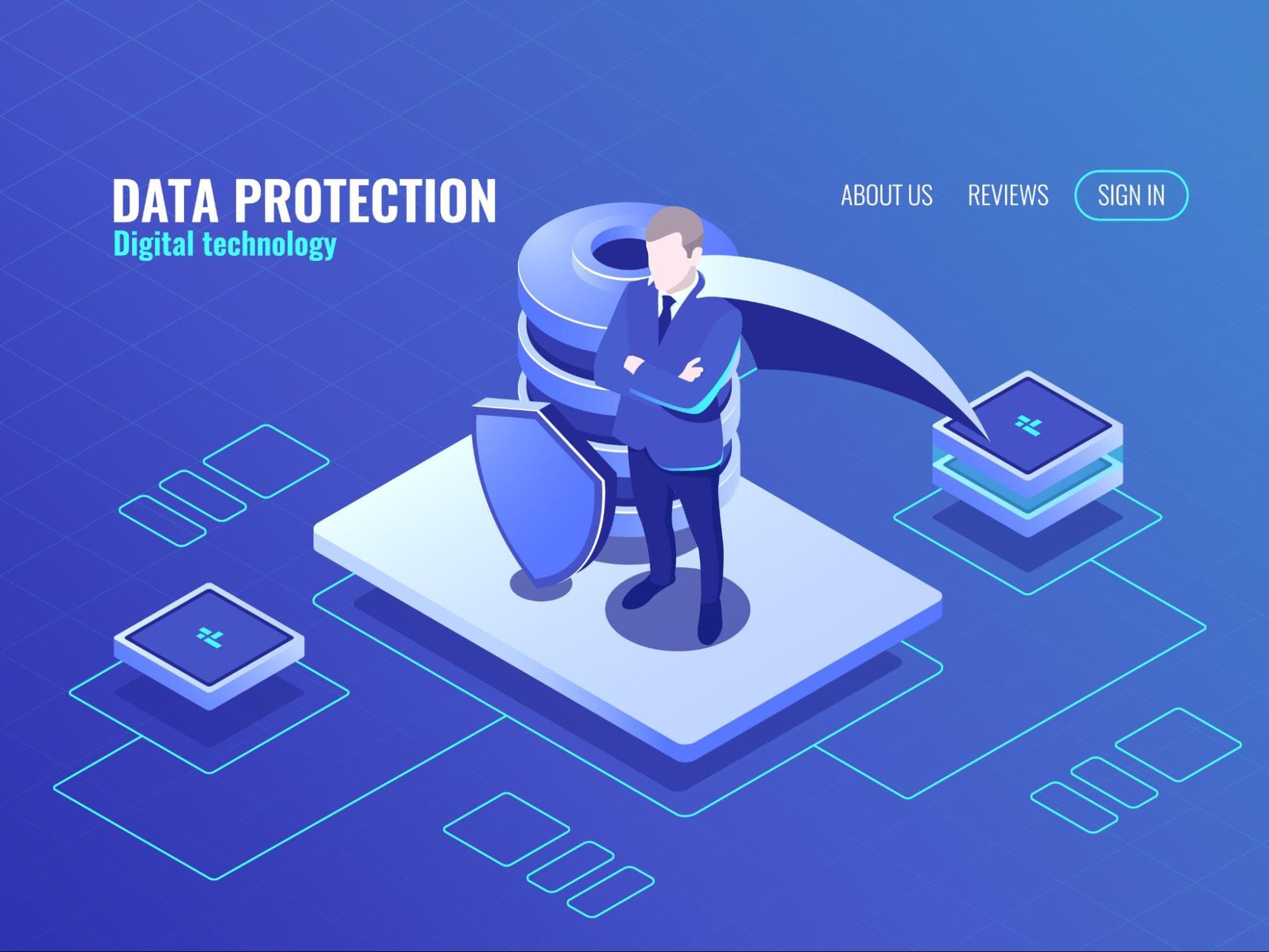When it comes to navigating the vast world of internet technologies, terms like "VPS" and "VPN" often come up. But what exactly are they? And more importantly, how do they differ? In this article, we'll break down the concepts of VPS vs VPN in simple terms, so you can make an informed decision about which one suits your needs best. Whether you're looking for enhanced privacy online, secure hosting solutions, or just want to understand these technologies better, this guide will walk you through everything from their definitions to practical applications. Let's dive into whats making these two services so popular.

What is a VPS?
A VPS, or Virtual Private Server, is essentially a virtualized server environment hosted on a physical machine. Think of it as having your own private space within a larger server farm. When you rent a VPS, you get access to dedicated resources like CPU, RAM, and storage, even though multiple users might share the same hardware. This setup offers more control and flexibility than shared hosting while being less expensive than owning a full-fledged dedicated server.
In simpler terms, imagine renting an apartment in a building where each tenant has their own unit but shares common facilities like elevators or hallways. Similarly, with a VPS, you have your own isolated environment that feels completely independent, allowing you to configure it according to your specific requirements.
For businesses and individuals who need more power and customization options than basic web hosting provides, a VPS is often the go-to solution. It allows you to run complex applications, host websites, manage databases, and perform other tasks without worrying about resource limitations imposed by traditional shared hosting plans.
Pros of VPS
One of the biggest advantages of using a VPS is the level of control it gives you over your hosting environment. Unlike shared hosting, where you're limited to predefined settings, a VPS lets you tweak configurations, install custom software, and fine-tune performance based on your unique needs. Here are some key benefits:
- Scalability: need more resources? Most VPS providers offer easy upgrades, allowing you to scale up (or down) depending on demand.
- Security: since your VPS operates in its own isolated container, it’s much harder for malicious actors to breach your system compared to shared hosting.
- Flexibility: you can choose your operating system, install any software you need, and even set up firewalls or security protocols tailored to your business.
- Cost-Effective: compared to dedicated servers, VPS solutions provide similar capabilities at a fraction of the price.
- Reliability: many VPS providers guarantee high uptime rates, ensuring your websites and applications remain accessible around the clock.
These pros make VPS an attractive option for developers, small businesses, and anyone seeking greater autonomy over their hosting infrastructure.
Cons of VPS
While there are plenty of reasons to love VPS, it’s not without its drawbacks. For starters, managing a VPS requires a certain degree of technical expertise. If you’re unfamiliar with server administration, configuring and maintaining your VPS could be challenging. Additionally:
- Technical Complexity: setting up and securing a VPS involves understanding concepts like SSH, firewalls, and networking, which may intimidate beginners.
- Resource Limits: although VPS offers more resources than shared hosting, it still shares underlying hardware with other users. Overloaded neighbors can occasionally impact performance.
- Cost: while cheaper than dedicated servers, VPS plans can quickly add up if you require extensive resources or advanced features.
Despite these cons, many users find the trade-offs worthwhile due to the increased control and performance they gain.
What is a VPN?
Now let’s shift gears and talk about another widely used technology: the VPN, or Virtual Private Network. At its core, a VPN creates a secure tunnel between your device and the internet, encrypting all data transmitted through it. This means that no matter where you connect from — whether it’s a public Wi-Fi hotspot or your home network — your activity remains hidden from prying eyes.
VPN are commonly used to enhance online privacy, bypass geo-restrictions, and protect sensitive information when accessing the web. By routing your traffic through a remote server located elsewhere, a VPN masks your real IP address, making it appear as though you’re browsing from a different location. This feature is particularly useful for streaming content blocked in your region or avoiding censorship in certain countries.
Why use a VPN?
The primary reason people turn to VPN is for added security and anonymity online. Without one, your internet service provider (ISP), government agencies, or hackers could potentially monitor your activities. With a reliable VPN service, however, you enjoy peace of mind knowing that your personal data stays safe and confidential.
Here’s a quick list of scenarios where a VPN proves invaluable:
- Protecting yourself on unsecured public Wi-Fi networks.
- Accessing restricted websites or services unavailable in your country.
- Shielding your identity during torrent downloads or P2P file sharing.
- Preventing advertisers from tracking your behavior across various platforms.
Ultimately, a good-quality VPN ensures that your online presence remains as private and secure as possible.
Difference between VPS and VPN
So now that we’ve explored both VPS and VPN individually, let’s examine the difference between them. While both involve the word “virtual,” their purposes couldn’t be more distinct. A VPS focuses primarily on providing a robust hosting platform for running websites, applications, or other server-based tasks. On the other hand, a VPN concentrates on safeguarding your internet connection and enhancing your privacy.
To put it simply:
- A VPS acts as a virtual server where you store files, databases, and run scripts.
- A VPN serves as a protective layer between your device and the rest of the internet.
Another significant distinction lies in how they handle data. With a VPS, you’re responsible for securing your own environment, including setting up firewalls, updating software, and monitoring logs. Meanwhile, a reputable VPN provider takes care of encryption and anonymization automatically, freeing you from much of the heavy lifting.
It’s also worth noting that VPS tends to cater to tech-savvy users who need advanced hosting capabilities, whereas VPN appeals to anyone concerned about their digital footprint. Both tools play crucial roles in today’s interconnected world, but their intended audiences and functions vary significantly.
| Aspect | VPS (Virtual Private Server) | VPN (Virtual Private Network) |
|---|---|---|
| Purpose |
|
|
| Functionality |
|
|
| Use Cases |
|
|
| Security |
|
|
| Cost |
|
|
VPS vs VPN.
Can I set up a VPN on my VPS?
Absolutely! One of the great things about owning a VPS is the freedom it grants you to experiment with different configurations. Setting up a personal VPN on your VPS is entirely feasible and relatively straightforward for those comfortable working in command-line interfaces. Doing so allows you to create a custom solution tailored specifically to your needs, bypassing potential limitations imposed by third-party providers.
Here’s why someone might consider installing a VPN on their VPS:
- Customization: tailor encryption methods, protocols, and server locations to suit your preferences.
- Cost Savings: instead of paying monthly fees to commercial VPN services, leverage existing VPS resources to achieve similar results.
- Control: manage every aspect of your VPN setup, including logging policies and bandwidth allocation.
However, keep in mind that self-hosting a VPN demands time, effort, and knowledge of Linux systems. Moreover, unless you invest in robust hardware, performance may suffer under heavy loads. That said, for enthusiasts willing to take on the challenge, combining VPS and VPN technology opens up exciting possibilities.
With most VPNs, you’re trusting the provider blindly. You have no real way of knowing what they’re logging or how they’re handling your data. It’s a black box — until it isn’t. A VPS gives you full control: you decide what gets logged and who has access. But that power comes with responsibility. Unlike plug-and-play VPNs, a VPS requires setup, maintenance, and technical know-how. If privacy and control are non-negotiable, though, it might be the only honest choice.
VPN vs. VPS – Do They Compare?
At first glance, comparing VPS vs VPN seems like trying to contrast apples and oranges. After all, they serve entirely different objectives within the realm of internet technology. Yet, confusion arises because both terms incorporate the letter ‘V’, leading some to mistakenly believe they’re interchangeable.
Let’s clarify once and for all: VPS refers to a type of hosting service designed for deploying servers, hosting websites, and executing backend processes. Conversely, VPN focuses exclusively on securing your internet connection and shielding your identity online. The difference couldn’t be clearer.
That doesn’t mean they can’t coexist harmoniously, though. In fact, pairing a VPS with a VPN creates a powerful duo capable of addressing diverse challenges faced by modern internet users. For instance, businesses might utilize a VPS to host mission-critical applications while simultaneously employing a corporate-grade VPN to ensure employee communications remain encrypted and private.
FAQs
Before wrapping up, let’s tackle a few frequently asked questions surrounding VPS and VPN usage.
-
How to choose a VPS for VPN?
Selecting the right VPS plan depends largely on your intended purpose. Key factors to consider include:
- Performance Requirements: assess whether you need standard SSD storage or premium NVMe drives for faster speeds.
- Bandwidth Limits: ensure the chosen package includes sufficient monthly transfer quotas to accommodate expected traffic.
- Operating System Support: verify compatibility with OpenVPN or WireGuard, two popular open-source protocols.
- Location Options: opt for data centers situated near target regions to minimize latency issues.
Remember, reliability matters too. Always research reviews and uptime guarantees before committing to a particular provider.
-
Do I need a VPN if I have a VPS?
Not necessarily. Having a VPS provides numerous advantages, but it doesn’t inherently address concerns related to online privacy or security. If protecting your browsing history and evading surveillance rank high among your priorities, then yes — a separate VPN subscription remains advisable. However, if your main goal revolves around managing websites or automating scripts, relying solely on your VPS might suffice.
-
Why Do I Need a VPN?
Privacy advocates emphasize the importance of using a VPN whenever connecting to the internet, especially via public Wi-Fi hotspots. Without proper protection, sensitive details such as passwords, credit card numbers, and personal messages risk interception by cybercriminals lurking nearby. Furthermore, governments worldwide increasingly impose strict regulations limiting access to certain types of content. Utilizing a trusted VPN helps sidestep such restrictions while preserving your fundamental rights to free expression.
-
Can I use VPS as a proxy?
Yes, technically speaking, a VPS can function as a proxy server. Proxies act as intermediaries between clients and destination servers, masking original IP addresses along the way. Configuring your VPS as a proxy involves installing appropriate software (e.g., Squid, Nginx) and adjusting firewall rules accordingly. Bear in mind, however, that proxies generally lack the strong encryption mechanisms built into most modern VPN solutions, leaving them vulnerable to attacks targeting unencrypted connections.
-
How much does a VPS server cost?
Prices fluctuate depending on specifications, geographic location, and duration of commitment. Entry-level VPS plans start around $5-$10 per month, offering modest allocations of CPU cores, RAM, and disk space. High-end configurations catering to enterprise workloads can exceed several hundred dollars monthly. Fortunately, many providers offer flexible pricing tiers, enabling customers to upgrade or downgrade as necessary without penalty.
Understanding the distinction between VPS and VPN empowers you to make smarter decisions regarding your technological investments. Each tool brings something unique to the table, complementing rather than competing against the other. So whether you’re exploring ways to improve your website’s performance or striving to fortify your online defenses, rest assured knowing that viable options exist to meet virtually any requirement.



